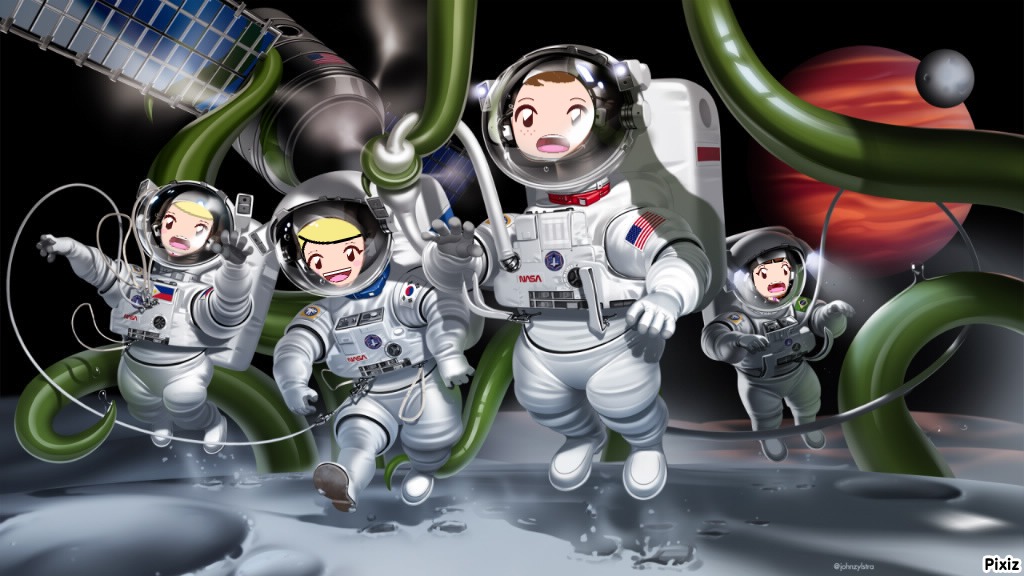Are Astronauts Scared Of Space?

Exploring the vastness of space captivates the imagination of many, but it also raises questions about the emotions and psychological states of those who venture into this uncharted territory. Astronauts, trained professionals who travel to space, often face the unknown. While the allure of space travel is undeniable, there is a common curiosity: Are astronauts scared of space? This article delves into the fears and emotions experienced by astronauts, the psychological training they undergo, and how they manage the inherent risks of space exploration.
Quick Info Table: Astronauts and Their Fears
| Aspect | Description |
|---|---|
| Training | Astronauts undergo extensive psychological training to cope with fear and stress. |
| Common Fears | Fear of isolation, heights, failure, and the unknown. |
| Coping Strategies | Team support, mindfulness, and simulations. |
| Expert Insights | Psychologists emphasize the importance of emotional resilience. |
| Famous Quotes | "Space is an unforgiving environment." - Chris Hadfield |
Understanding the Fear of Space
The Nature of Fear
Fear is a natural human emotion, often rooted in the instinct for survival. In the context of space travel, this fear can stem from various sources. For instance, astronauts may experience anxiety about the vastness of space, the potential for equipment failure, or the isolation felt during long missions. These fears are not unique to astronauts; they are shared by anyone facing a daunting challenge. However, astronauts must confront these fears in an environment where the stakes are extraordinarily high.
Common Fears Among Astronauts
While astronauts are selected for their resilience and training, they are still human. Some common fears include:
- Fear of Heights: The vastness of space can trigger acrophobia, even in seasoned astronauts, as they are often thousands of miles above Earth.
- Fear of Failure: With millions invested in their training and missions, the pressure to succeed is immense. The consequences of failure can be catastrophic, adding to the stress.
- Fear of Isolation: Long-duration missions, such as those to the International Space Station (ISS), can lead to feelings of loneliness and isolation, especially during extended periods away from family and friends.
- Fear of the Unknown: The unpredictability of space can evoke anxiety. Astronauts face scenarios that cannot be fully simulated or anticipated.
Psychological Training for Astronauts
Preparing for the Mental Challenge
To address these fears, astronauts undergo rigorous psychological training. This training is designed to enhance their emotional resilience and coping strategies. It includes simulations of various scenarios they might encounter in space, helping to desensitize them to potential fears.
-
Simulations: Astronauts participate in simulated space missions that replicate the conditions they will face. This helps them become familiar with the environment and reduces anxiety when they encounter real situations.
-
Team Building Exercises: Building camaraderie with fellow astronauts is crucial. Teamwork is emphasized, as astronauts rely on each other for support during missions. This bond helps alleviate feelings of isolation and fear.
-
Mindfulness and Stress Management: Techniques such as mindfulness meditation are taught to help astronauts manage stress and maintain focus. These practices allow them to remain calm in high-pressure situations.
Expert Insights
Psychologists specializing in space travel emphasize the importance of mental health support. According to experts, developing emotional resilience is as critical as physical training. Dr. John McCoy, a psychologist who has worked with astronauts, notes that "the psychological challenges of space travel can be as daunting as the physical ones." He emphasizes that astronauts must learn to cope not just with the technical aspects of their missions but also with their emotional responses to those challenges.
Coping Strategies in Space
Team Support
One of the most significant coping strategies for astronauts is the support of their crewmates. Working closely with others helps mitigate feelings of fear and anxiety. The bond formed during training and missions fosters an environment of trust, allowing astronauts to express concerns and fears openly.
Mindfulness Techniques
Astronauts also employ mindfulness techniques to stay grounded. Practices like deep breathing, visualization, and meditation can be effective in managing stress. For example, before a spacewalk, an astronaut might take a moment to focus on their breathing and visualize a successful mission, helping to reduce anxiety.
Routine and Structure
Maintaining a structured daily routine in space is another way astronauts cope with fear. By sticking to a schedule that includes work, exercise, and relaxation, astronauts can maintain a sense of normalcy, which is vital for their mental well-being.
The Impact of Fear on Performance
Fear as a Motivator
Interestingly, fear can sometimes serve as a motivator rather than a hindrance. For many astronauts, the fear of failure pushes them to prepare more thoroughly and perform their tasks with greater care. This drive for excellence can lead to improved performance and problem-solving in critical situations.
Overcoming Fear
In addition, astronauts often report that confronting their fears can lead to personal growth. Overcoming the challenges of space travel can instill a sense of accomplishment and confidence. As **NASA astronaut Scott Kelly puts it, "The only way to get through fear is to face it head-on."
Conclusion
In conclusion, fear is an inherent part of the human experience, and astronauts are no exception. While they face unique challenges in the vastness of space, their extensive training and coping strategies equip them to manage these fears effectively. Through teamwork, mindfulness techniques, and a structured routine, astronauts navigate the psychological landscape of space exploration.
Understanding that fear is a natural response helps demystify the experience of astronauts. Rather than being paralyzed by fear, they learn to embrace it as part of their journey. As we continue to explore the cosmos, the lessons learned from these brave individuals will not only enhance our understanding of space but also provide valuable insights into human resilience and the power of teamwork. The next time you gaze at the stars, remember that even the most trained astronauts confront their fears, transforming them into sources of strength and motivation.



Comments ()